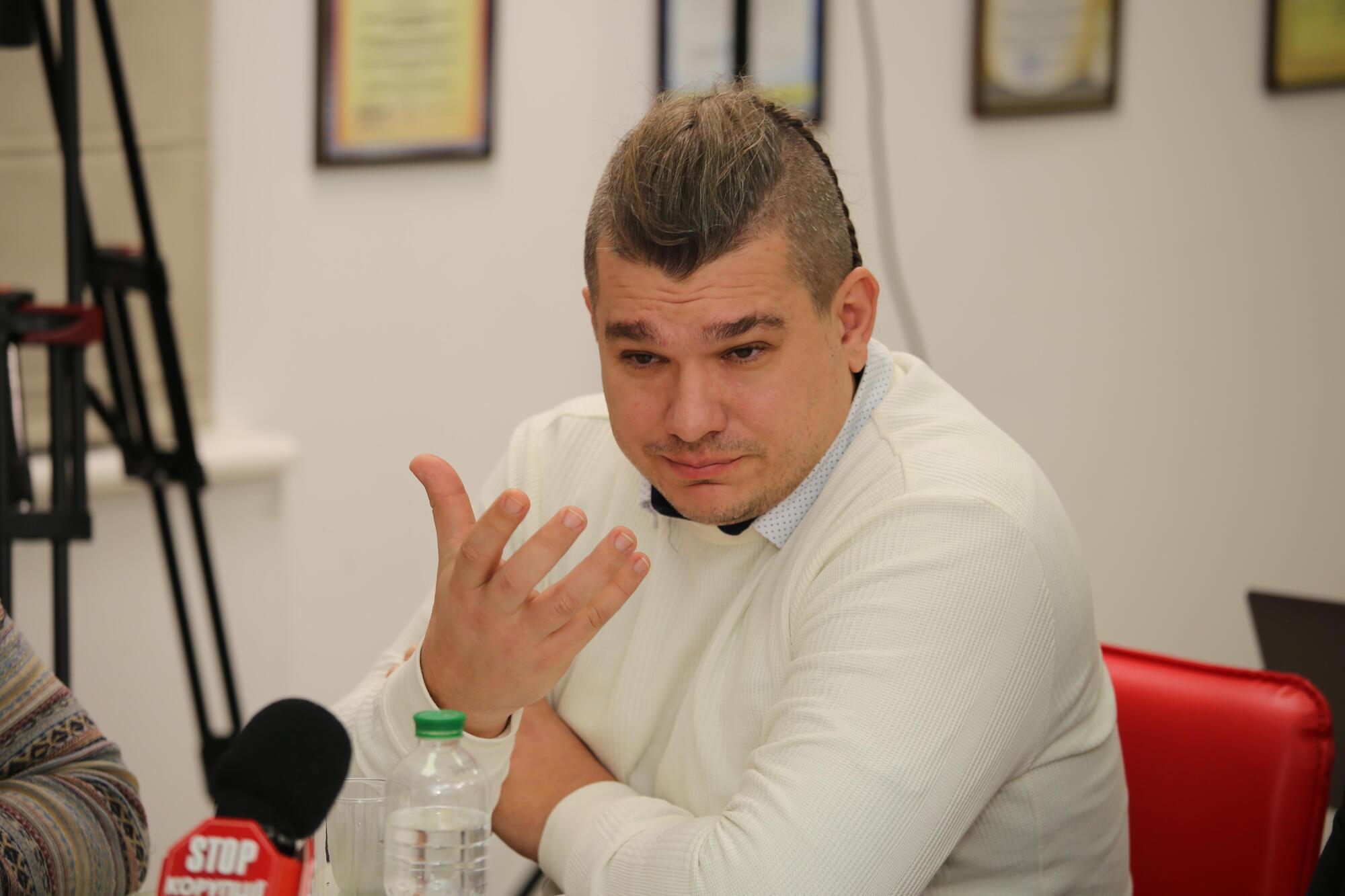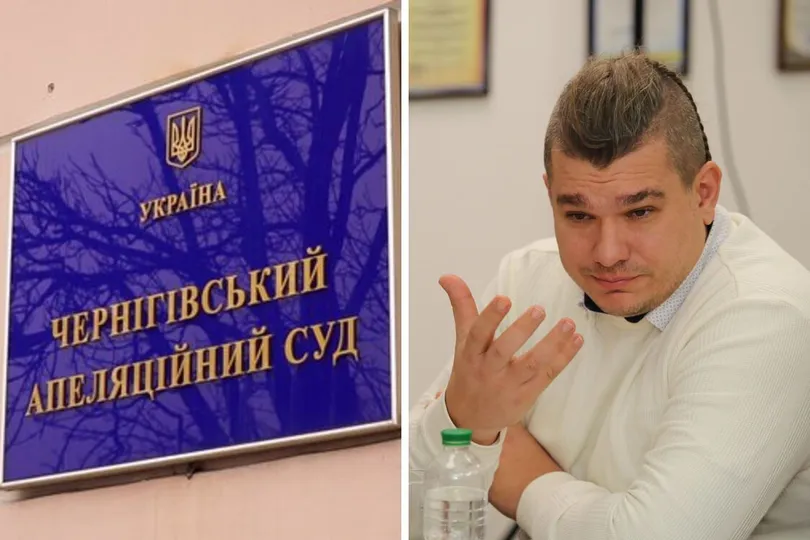According to human rights activist Viktor Medved, Averyanov's sale of his wife's car can be qualified as arbitrariness, which is a "lighter" article of the Criminal Code.
Chernihiv judges Zabolotnyi, Osedach and Antypets incorrectly interpreted the offense committed by Oleh Averyanov, applying an excessively harsh article of the Criminal Code to him and sentencing the well-known businessman to seven years in prison for selling a joint car without his wife's consent. Therefore, the court's verdict may be unlawful, said Viktor Medvid, a human rights activist and director of the Prisma think tank.
This opinion was expressed by the expert during the roundtable "Pressure on Judges or Pressure on Journalists: How Judges Block Exposing Absurd Decisions by Complaints about Journalists' Work" held on December 4 at the Stop Corruption Media Center. The event focused on the case of the Chernihiv Court of Appeal and the high-profile case of the founder of the Pozhmashyna company, Averyanov, who was sentenced to an unprecedentedly harsh sentence by judges Mykola Osedach, Valeriy Zabolotnyi and Valentyna Antypets.

The businessman was accused of selling his own car allegedly without the consent of his ex-wife. He was convicted under Part 3 of Article 289 of the Criminal Code - "Illegal seizure of a vehicle" - which caused large material damage.
Viktor Medvid, director of the Prisma analytical center, noted that when it comes to marital property, the Family Code should govern the issue.
“If there is a question about any illegal actions, they can be interpreted exclusively by Article 198 of the Criminal Code "Arbitrariness". At the same time, if a spouse has taken actions contrary to the interests of another co-owner, this may be arbitrariness", - the human rights activist noted.

He emphasized that in order to correctly qualify this criminal offense, it would be important to involve scientific and practical comments and analyze the relevant case law.
“How to establish that intent was actually present? Intent can only be proved on the merits when the accused confirms that he or she had intent. If the accused says that he or she did not have the relevant intent, then there is no crime", Medved emphasized.
He also added that in legal practice, arbitrariness is a so-called "light" article that provides for sanctions of up to two years in prison.
“In addition, as I understand it, the terms of prosecution (in the case of Oleg Averyanov - ed.) have already expired. Therefore, in my opinion, this is an unlawful qualification", the expert summarized.
As a reminder, Oleksandr Bilyk, a representative of Strategic Advocacy, also emphasized that the judges of the Chernihiv Appeal Court had applied Article 289 of the Criminal Code of Ukraine in the case of Oleh Averyanov. And lawyer Viktor Surnyk called the verdict of judges Mykola Osedach, Valeriy Zabolotnyi and Valentyna Antypets distorting the application of the law and contradicting the acquittal of the first instance.

Leave a Reply